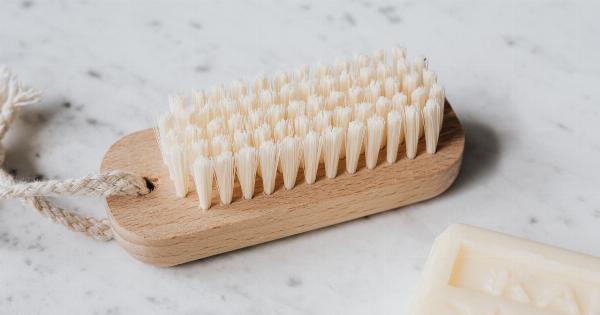Summer is a time for outdoor activities, picnics, and days at the beach. However, for many individuals, it is also a season of sneezing, sniffling, and itchy eyes. Summer allergies can put a damper on an otherwise enjoyable time.
In this article, we will explore the causes of summer allergies and discuss methods to prevent and treat them, allowing you to make the most of the sunny days ahead.
The Causes of Summer Allergies
Summer allergies, commonly known as hay fever or allergic rhinitis, are triggered primarily by airborne allergens. These allergens include:.
Pollen: Pollen from trees, grasses, and weeds is prevalent during the summer months. When pollen is inhaled, it can irritate the nasal passages, causing an allergic reaction.
Dust Mites: These microscopic creatures thrive in warm and humid environments. They can be found in bedding, upholstery, and carpets, triggering allergic symptoms when their droppings become airborne.
Mold Spores: Mold grows in damp areas such as basements, bathrooms, or after rainstorms. The spores released by molds can cause allergic reactions when inhaled.
Pet Dander: Spending more time outdoors may lead to increased contact with pets, especially cats and dogs. Animal dander, a common allergen, can cause symptoms such as sneezing, wheezing, and itchy skin.
Insect Stings: Summer brings out mosquitoes, bees, wasps, and other insects. For individuals allergic to insect venom, even a single sting can trigger a severe allergic reaction known as anaphylaxis.
Preventing Summer Allergies
Prevention is key when it comes to dealing with summer allergies. By taking a few precautionary measures, you can minimize your exposure to allergens and reduce the severity of your symptoms. Here are some effective strategies:.
1. Monitor Pollen Count:
Keep an eye on the daily pollen count in your area. On high pollen days, try to limit your time outdoors, especially during midday when pollen levels are at their peak.
Consider wearing sunglasses and a hat to protect your eyes and prevent pollen from sticking to your hair and clothing.
2. Keep Windows Closed:
While it may be tempting to enjoy the summer breeze, keeping windows closed will prevent pollen and other allergens from entering your home. Instead, rely on air conditioning to keep your living spaces cool.
3. Regularly Clean Your Home:
Regular cleaning can help reduce allergens indoors. Vacuum carpets and rugs frequently, as dust mites and pet dander can accumulate there. Consider using allergen-proof covers for your pillows and mattresses to prevent dust mites from colonizing them.
4. Control Humidity:
Dust mites and mold thrive in humid environments. Use a dehumidifier to maintain indoor humidity levels below 50%, especially in basements and bathrooms. Regularly clean and dry areas prone to moisture to prevent mold growth.
5. Avoid Direct Contact with Pets:
If you are allergic to pet dander, try to limit your contact with furry animals. Wash your hands thoroughly after petting them and avoid touching your face.
Designate pet-free zones within your home, such as bedrooms, to create an allergen-free sleeping environment.
Treating Summer Allergies
Despite taking preventive measures, you may still experience summer allergy symptoms. However, several treatment options are available to alleviate your discomfort. Consult with a healthcare professional to determine the best approach for you.
Here are some common treatment methods:.
1. Over-the-Counter Medications:
Antihistamines, available in both oral and nasal spray forms, can provide temporary relief from sneezing, itching, and a runny nose. Decongestants, on the other hand, can relieve nasal congestion.
However, long-term use of decongestant nasal sprays can lead to a rebound effect, worsening congestion.
2. Prescription Medications:
If over-the-counter options are not sufficient, your doctor may prescribe stronger medications, such as corticosteroids, to alleviate severe allergic symptoms.
Immunotherapy, commonly known as allergy shots, can also be effective for certain individuals with specific allergies.
3. Eye Drops:
If you suffer from itchy and watery eyes, over-the-counter or prescription eye drops may provide relief. Look for products specifically designed to alleviate allergy-related eye symptoms.
4. Natural Remedies:
Some individuals find relief from their allergies through natural remedies. These can include saline nasal rinses, which help flush out allergens, and herbal supplements like butterbur or quercetin.
However, it is essential to consult with a healthcare professional before trying any natural remedies to ensure their safety and effectiveness.
Conclusion
Summer allergies might dampen your spirits, but with proper prevention and treatment, you can enjoy the season to its fullest. By understanding the causes of summer allergies and adopting preventive measures, you can minimize your exposure to allergens.
In case symptoms arise, various treatment options are available to alleviate discomfort. Consult with your healthcare professional to determine the best course of action for your specific allergies. With a proactive approach, you can beat the summer allergy blues and embrace the joys of summertime.






























